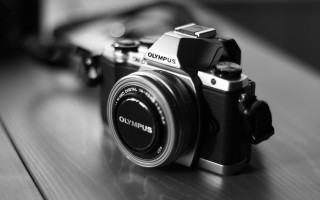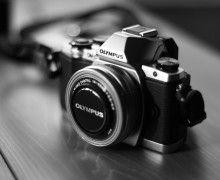Wedding photos mastering - Tips for Success
Many wedding guests view taking wedding photographs as only a casual activity. If they take them, it is often done on impulse to get a good picture for the bride and groom. Honestly, most guests are there just to have fun and taking pictures is the last thing on their mind. You on the other hand, may have a different view. Yes, you want to enjoy yourself, but you also want to snap some great photographs for the bride and groom, as well as yourself. In that case, you want to do a little bit of planning.
To get the best shots or at least the ones you know the bride and groom will appreciate, ask these important questions
- Will there be other photographers there? This question allows you to be in contact with them; stay out of their way, and get photographs not on their commotion list.
- What type of people does the guest list mostly consist of; will there be friends, family or both? This question allows you to get an idea of the guests you will be photographing.
- What locations will be used for the wedding? Will the wedding ceremony be inside or outside and what about the reception? These questions enable you to prepare ahead of time in terms of lighting, shutter speed and ISO.
- What type of photographs would you like? This is the most important question to ask. The bride and groom will appreciate any extra photographs you send their way, but why not ensure they are just what they wanted. Would they like you to be available for staged shots or would they prefer you to be making your way around the room snapping candid pictures?
Now, if you are a secondary photographer (like if a professional photographer was hired too), it is your decision if you want to bring along extra equipment aside from a digital camera with a large storage disk. The if happy couple hired you or asked you to take pictures as a way to avoid paying a professional photographer, here are some supplies you should use:
1. Two digital cameras. Chances are your first camera will work fine, but you should always have a backup camera just in case.
2. Camera lenses and filters. This is ideal if the wedding ceremony is outside, but the wedding reception is inside. You may need to switch between a few different lens and filters.
3. A tripod. A tripod is ideal for “traditional” staged shots, as well as indoor shots that have low lighting.
4. Extra memory cards. As you know, it is easy to be caught up in the moment of a wedding (even if you are just casually taking pictures). Before you know it, you may have hundreds of pictures and a full memory card. You can avoid disaster by having extra memory cards on hand.
5. A portable storage drive. This is vital if you do not intend to use extra memory cards. If your memory card gets full, unload the images to free up space. If you do not have a portable drive, a laptop will do.
6. Extra batteries. It is best to ensure the batteries for your digital camera are well charged, but pack a few extras just in case.
Now that you have a few tips for preparing for wedding photography, here are a few tips for that special day.
- Arrive early if the bride or groom will allow you to do so. This enables you to setup your equipment beforehand.
- Try to get information on where everyone will be standing so that you can get the best shot. For example, where will the couple and priest be at the church?
- Upload the pictures to a gallery on your computer or an online gallery. This enables you to let the couple choose the photographs they want printed. If you are doing this as a favor, you can just burn the pictures onto a disk. Let them pick, choose and pay for the pictures they want printed.
As you know, taking wedding pictures is both a joy and a challenge. Even if the happy couple hired a professional wedding photographer, they will still greatly appreciate and treasure the pictures you took of their special day.


